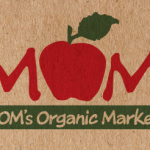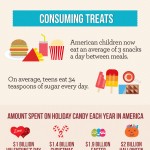Tell me what you eat, and I will tell you who you are.
-Brillat-Savarin
Today all over my internets there were headlines about the “breaking news” of a newly released study indicating the nutritional content of organic food is not much different than conventionally grown; that researchers found only “a few differences involving pesticides and antibiotics.”
No kidding.
How is this even news? An apple is an apple, friends; an orange is an orange. Which apple or orange you consume makes little difference in the nutrition your body will gain from it, and that’s why I advise to not let the perfect be the enemy of the good. If all you can afford is conventionally grown, then by all means choose that over processed and packaged.
But those “few differences” involving pesticides and antibiotics are kind of a big deal.
Personal nutrition isn’t the reason to buy organic, just like we don’t hold open doors for old ladies just so they might include us in their will or donate to children’s hospitals just in case our own kids are one day struck down by cancer. We do those things for the greater good. We do them because they are the right thing to do.
By buying organic, we:
- contribute to the health of the farmers and laborers so they don’t have to handle dangerous pesticides.
- contribute to the health of local ecosystems by not decimating the insect population, which is needed to support the food chain of our native wildlife, not to mention to continue pollinating our crops.
- contribute to the health of our environment by lessening the amount of chemical deposits in our soil, air and water.
- contribute to our own health and the health of our families by limiting the “body burden” of chemicals we carry and their interaction in our bodies.
- contribute to the sustainability and availability of organic foodstuffs, both by immediately supporting current organic famers, and by illustrating a demand that conventional farmers can see meeting with supply as economically viable. Money talks.
Studies like this make me nuts. The facts are selective, the reasoning faulty.
It’s not all about you.
The study also found that while bacterial contamination is much the same for organic and conventionally farmed meats (probably because they are slaughtered and packed in the same plants), non-organics were 33% more likely to be resistant to antibiotics.
Why? Factory farmed animals are systematically given antibiotics to preempt the diseases common to overpopulation, lack of mobility and insufficient individual care. It’s a health hazard I feel no one takes seriously enough. Anything we can do to stop the evolution of drug-resistant “superbugs” shouldn’t be taken lightly.
Our generation hasn’t had to withstand any epidemics on the scale of smallpox, the flu of 1918, cholera, typhus; I don’t know about you, but I’m totally cool with keeping it that way.
So, no. Buying organic isn’t going to help you lose weight, increase your vitamin intake or make you into a better person. There is no one magic pill, health is a synergy of many things, OMG, how have we not learned that yet. Improve your diet by improving your overall diet. Get healthy by making healthy decisions in every part of your life.
Buy organic to do your part to help make the world a better place… or at least not a worse one than we have now. It’s called social responsibility and if you have the means, be responsible.
And if you decide to shirk that responsibility, fine, it is your life and your money. Just please be honest with yourself about why.
Willful ignorance is very unattractive, especially when passed on as your legacy to your children.
Related Posts
The post Why the Nutritional Content of Organic vs Non Doesn’t Matter appeared first on simple.green.organic.happy..






